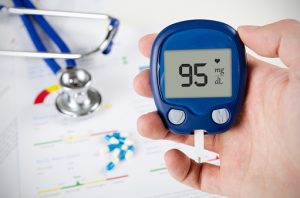
Diabetes has been diagnosed in approximately 420 million people across the globe, while an additional 180 million are living with the condition without realizing it. As such, an early detection device would prove to be extremely beneficial as it could help those who are undiagnosed better manage their condition and improve their quality of life.
The aim of the device is to use a tiny drop of blood, similar to that used to check blood sugar in diabetes patients, to test for diabetes at either an early or imminent stage. Developers are also hoping that the device will be able to distinguish between type 1 diabetes and type 2 diabetes, giving the user a more tailored diagnosis so they may better map out their healthcare plan.
To detect and diagnose the user with diabetes, the device makes use of a chip that is designed to detect specific biomarkers within the blood. A biomarker is a substance found in the blood stream that can help indicate whether a patient has a specific condition, disease, or other biological state.
The chip will have an optical sensor that will test the blood for three different biomarkers that may indicate the presence of diabetes, as well as whether it is type 1 or type 2. The device is being designed so that it is portable and sturdy, as well as relatively cost-effective, so that it may be easily accessible to the public.
The early detection of diabetes in such a simple and efficient manner would allow people to properly regulate their blood sugar levels and prevent the harmful side effects of leaving the disease undiagnosed. The development of this device could mean that populations worldwide would better be able to detect and treat type 1 diabetes and type 2 diabetes, improving overall health and quality of life.
Related: Diabetes diet: Healthy snacks for managing diabetes